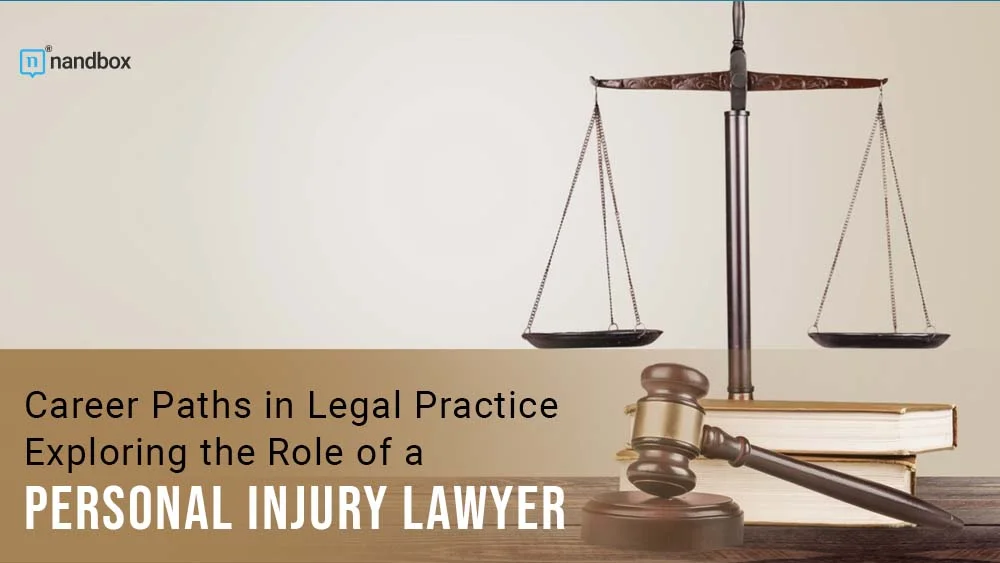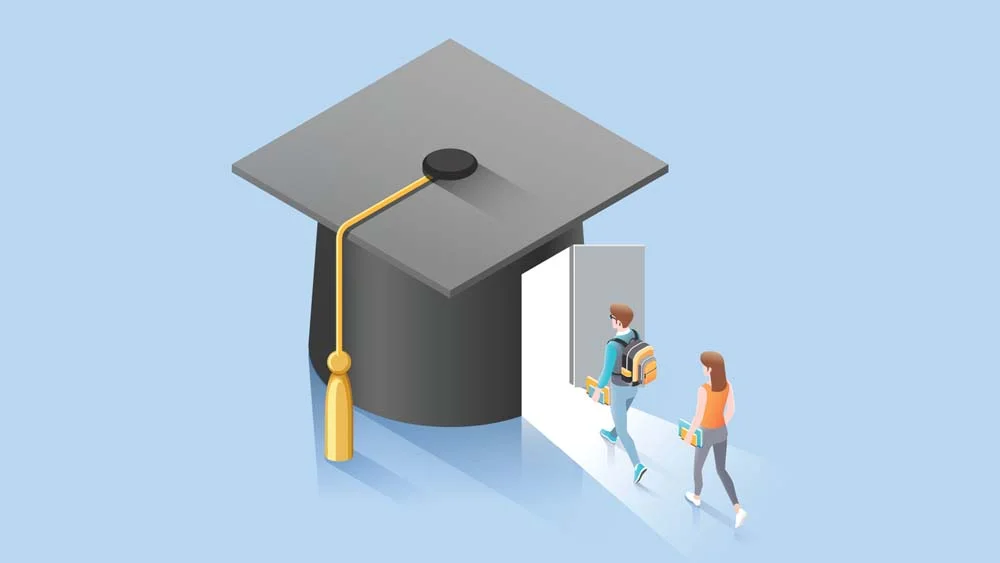Lawyer Career Path: Exploring the Role of a Personal Injury Lawyer
What is the best lawyer career path? Have you ever wondered what it truly means to be a personal injury lawyer?
What qualifications and skills are necessary to excel in this demanding yet rewarding profession? And how can you chart your own path in this specialized field of law?
If you’re someone who believes in seeking justice for those wrongfully injured, and if these questions have crossed your mind, then this article is for you.
Get ready to explore the ins and outs of personal injury law and discover the boundless possibilities it offers to make a positive impact on the lives of others.
Join us as we dive into the inspiring world of personal injury law, exploring the pivotal role and responsibilities of a personal injury lawyer, discussing the essential qualifications and skills needed to succeed, and uncovering the potential career trajectories that await passionate advocates like yourself.
Let’s begin!
About Personal Injury Law
In the realm of legal practice, personal injury law specifically encompasses cases where an individual has suffered physical or emotional harm. Moreover, it also covers situations where there are financial losses. All these can arise due to the actions or negligence of another party.
These cases can involve a wide range of incidents, including:
- automobile accidents
- slip and fall accidents
- medical malpractice
- wrongful deaths
- product liabilities
- dog bites
- workplace injuries
Role and Responsibilities of a Personal Injury Lawyer
Personal injury lawyers play a crucial role in helping victims navigate the legal process and seek compensation for their losses.
Here are some key responsibilities of a personal injury lawyer:
Client Consultation
Personal injury lawyers begin their job by meeting with clients to understand the details of their cases.
This involves gathering information, assessing the strength of the claim, and providing initial legal advice.
This initial consultation is crucial for establishing a strong attorney-client relationship and determining the best course of action for pursuing the compensation and justice the client deserves.
Investigation and Case Building
Once a personal injury lawyer takes on a case, they conduct a thorough investigation to:
- gather evidence
- interview witnesses
- consult with experts, and
- assess liability.
This information is crucial for building a strong case and negotiating fair settlements.
Personal injury lawyers diligently investigate accident scenes, obtain medical records, collect witness testimonies, and consult with car accident lawyer to build compelling cases for their clients.
Their meticulous approach helps ensure that clients receive the comprehensive representation they need to pursue their claims successfully.
Legal Documentation and Filing
Personal injury cases involve a significant amount of paperwork. This includes legal documents, insurance claims, and court filings.
Lawyers assist their clients in preparing and filing these documents accurately and within the required deadlines; For anyone involved in a personal injury case, understanding the complexities of legal documentation is essential. It’s not just about filing papers but knowing the strategic importance of each document and how it can influence the outcome of a case. Resources that offer comprehensive guides and expert insights, such as this guide on personal injury law, can be invaluable for both new and experienced lawyers alike. Staying informed and utilizing such resources can significantly enhance a lawyer’s ability to advocate effectively for their clients, ensuring that every step taken is backed by solid legal knowledge and practical advice.
By doing so, personal injury lawyers help expedite the legal process, allowing clients to focus on their recovery while their case progresses smoothly.
Negotiation and Settlement
Personal injury lawyers often engage in negotiation with insurance companies or opposing parties to reach a fair settlement for their clients. If you’re looking to win your personal injury case with NYC’s top lawyers, they use their legal expertise and knowledge of precedents to advocate for the best possible outcome.
For this reason, when selecting a personal injury lawyer, it is essential to prioritize their expertise. Additionally, their communication skills should not be overlooked. Moreover, their commitment to fighting for your rights is of paramount importance. Collectively, these qualities are instrumental in navigating the complexities of personal injury cases and, ultimately, in achieving a favorable outcome.
Trial Representation
In cases where a fair settlement cannot be reached through negotiation, personal injury lawyers are prepared to take the case to trial.
In the trial, personal injury lawyers have a crucial role to play. Firstly, their jobs are to present evidence. Additionally, they cross-examine witnesses, and, most importantly, they argue the case before a judge and jury. Through their unwavering dedication and courtroom skills, these lawyers ensure that their clients’ stories are not just heard but understood. By doing so, they hold responsible parties accountable, thereby providing a much-needed sense of closure and resolution for those who have tragically suffered due to the negligence of others.
Necessary Qualifications and Skills
To embark on a career as a personal injury lawyer, several qualifications and skills are essential:
Education and Degree
A bachelor’s degree is a prerequisite for admission to law school.
Upon completion, aspiring lawyers must pass the bar exam in their jurisdiction to obtain a license to practice law.
This comprehensive test, which evaluates their knowledge of the law, serves as a gateway to their dream of becoming licensed practitioners who can advocate for justice and make a positive impact in the field of personal injury law.
Legal Knowledge and Research Skills
Personal injury lawyers must have a comprehensive understanding of personal injury laws, torts, and relevant regulations.
Moreover, they must also have strong research skills to stay updated on changing laws and precedents.
By staying well-informed and up-to-date, personal injury lawyers can provide effective and knowledgeable representation, ensuring that their clients receive the best possible legal advice and advocacy throughout the personal injury claims process.
Communication and Negotiation Abilities
Effective communication skills are vital for personal injury lawyers to interact with clients, opposing parties, insurance adjusters, and juries.
Apart from that, strong negotiation skills are essential for securing favorable settlements.
These skills allow personal injury lawyers to navigate complex legal situations with empathy, professionalism, and determination, making a meaningful impact on the lives of their clients by helping them rebuild and move forward after experiencing a personal injury.
Potential Career Trajectories
A career as a personal injury lawyer offers various opportunities for growth and specialization.
Some common career trajectories include:
- Upon entering the profession, many personal injury lawyers opt for joining established law firms. Initially, this path offers them the opportunity to gain valuable experience. Furthermore, within these firms, they benefit from mentorship. Lastly, being in such an environment allows them to handle a variety of personal injury cases, broadening their understanding and expertise.
- Starting a Solo Practice: Experienced personal injury lawyers often establish their own solo practices, allowing them to have more control over their caseload, clients, and career direction.
- Becoming a Legal Consultant: With extensive experience in personal injury law, some lawyers transition into legal consulting roles, offering their expertise to businesses, insurance companies, or government agencies.
- Becoming a Law Professor: Some experienced personal injury lawyers with a passion for teaching and sharing their knowledge may choose to transition into academia. They can become law professors, imparting their expertise and mentoring aspiring lawyers in the field of personal injury law. This path allows them to contribute to legal education and shape the next generation of legal professionals.
- Serving as a Mediator or Arbitrator: Personal injury lawyers who develop strong mediation and arbitration skills may choose to become mediators or arbitrators themselves. These professionals play a crucial role in facilitating the resolution of personal injury disputes outside of the courtroom. They help parties reach mutually agreeable settlements and avoid lengthy litigation processes, providing an alternative avenue for conflict resolution.
Conclusion
We’ve discussed a particular lawyer career path. A career as a personal injury lawyer offers a fulfilling opportunity to advocate for justice and help individuals who have been wrongfully injured.
By specializing in personal injury law, you can guide clients through challenging situations, ensure their rights are protected, and help them receive the compensation they deserve.
Initially, whether you choose to work with an established firm or take the leap to establish your own practice, the decision is significant. Regardless of the path chosen, a career as a personal injury lawyer can undeniably be both rewarding and impactful.







